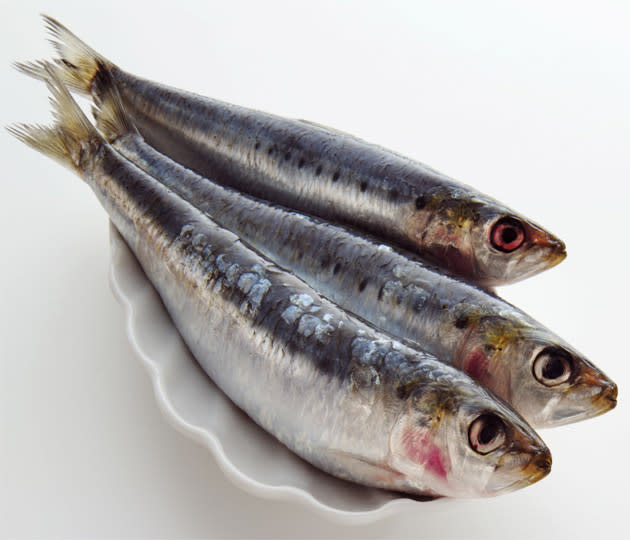 Yahoo Lifestyle
Yahoo LifestyleDietary Advice We've Followed For 30 Years 'Should Not Have Been Introduced'
Warnings we've been given about fat for the past three decades were not based on satisfactory evidence, and have left us open to other dietary enemies fueling the obesity crisis
If expert advice 30 years ago had worked, we would not be facing the obesity crisis we are now dealing with in the west.
Guidlines released in 1983 advised people to reduce their fat intake to 30 per cent of their total energy (calorie) intake, with a maximum of 10 per cent made up for saturated fat - but experts have now claimed that this advice should never been issued.

So while we've been avoiding full fat dairy, the demonisation of fats also seems to have left us vulnerable to other dietary no-nos - carbohydrates and sugar.
Experts looked at the data that was available at the time the guidelines came out, and stated: “It seems incomprehensible that dietary advice was introduced for 220 million Americans and 56 million UK citizens, given the contrary results from a small number of unhealthy men.
“The results of the present meta-analysis support the hypothesis that the available (randomised controlled trials) did not support the introduction of dietary fat recommendations in order to reduce (coronary heart disease) risk or related mortality.”

The fact that so many Brits and Americans are still overweight or obese seems to be proof enough that the expert guidelines we've been fed for three decades were no good. And after being told fat's the enemy for so long, it's hard to adapt to new suggestions that actually foods we've always eaten in abundance are what's causing our expanding waistlines.
Published in the online journal Open Heart, the paper concluded: “Dietary advice not merely needs review; it should not have been introduced.”
But before we start guzzling fatty foods, experts have warned that we still have to keep an eye on the fats we're eating.
Studies have shown that too much saturated fat can raise cholesterol levels which ups the risk of heart disease and heart attack - but unsaturated fat doesn't need to be maligned in the same way.
So What Can We Eat Now?
Carbs, sugar and processed foods we've relied on for easy meals now carry the biggest warnings, but we still have to be wary of the kind of fats we eat, so what is allowed?
Well, experts have been encouraging us for the past few years to change our attitudes towards food.
Instead of refined carbs such as white bread or pasta, which have had all their fibre and many of their nutrients stripped out before they get to our plates, we should opt for whole grains such as brown pasta, wholewheat bread and quinoa.
And they should make up just a small section of each meal - a hard thing for spaghetti bolognase lovers to deal with.
Instead, each meal should mostly consist of vegetables.
But obviously vegetables won't keep us full or give us enough energy to get on with life, so you'll need to add protein options - lean meats, poultry, cheese, tofu or fish are all good, healthy options. And 'good fats' including nuts and seeds, avocados, oily fish and olive oil.

And What Shouldn't We Eat?
You'll have heard it all before, but the new enemy - based on research - is sugar. And it's found in everything from bread to fizzy drinks. It's also found naturally in fruit and juices, which have been traditionally seen as super healthy, so here's where it gets more confusing.
Try to limit your sugar intake. Check packaging for added sugars and cook meals from scratch. Manufacturers often add sugar (and salt) to improve the taste of foods after they take out fat (for our 0% fat obsession based on the old, wrong guidelines), so try and avoid processed and packaged foods where possible.
Cut out fizzy drinks and try to get your fruit intake from whole fruits rather than juices. If you do want a juice, stick to one a day.
When it comes to choosing your carbs, avoid huge portions of white bread, pasta and rice.
And fat-wise, it isn't all a green lit - we still need to stear clear of food such as deep fried chicken and grease-laden chips, and anything processed from fast food chains is still to be severely limited!
It's a bit re-education for everyone but if we get it right, we can start to reverse the devastating spread of obesity with all its associated health risks.
[10 Health Mistakes Everyone Makes]
[Cancer Preventing Foods To Lower Your Risk]


